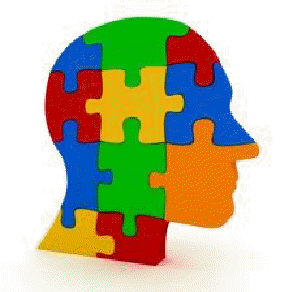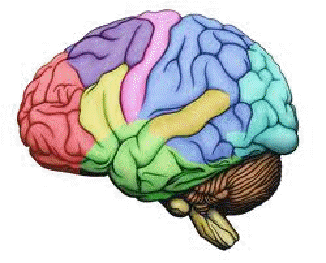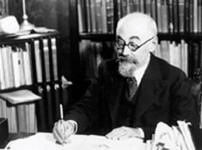A non-profit making organisation providing training in working with trauma at affordable prices.
Trauma Training in Scotland is run by The Trauma Therapy Trust – Charity No SC042686

A non-profit-making organisation providing training in working with trauma at affordable prices
A non-profit making organisation providing training in working with trauma at affordable prices.
Trauma Training in Scotland is run by The Trauma Therapy Trust – Charity No SC042686
This organisation has grown from a small group of therapists interested in improving access to the latest developments in treating the psychological consequences of traumatic experiences. Most of us initially trained in Eye Movement Desensitization and Reprocessing (EMDR) and Sensorimotor Psychotherapy (SP). We are committed to providing advanced techniques for the use of EMDR practitioners and introducing other therapeutic modalities which will improve clinical outcomes in complex trauma disorders. We are seeking to make such trainings as cheap as possible and to provide opportunities for therapists working in voluntary organisations to access trainings at reduced rates. The organisers do not make any money from this venture. Any profits are used for further educational events.
Trauma Training in Scotland is a membership organisation. Membership is open to anyone working in Scotland with clients/patients who have experienced trauma. To become a member please complete an application form and email it to traumatraininginscotland@gmail.com
Please see our privacy policy on use of member data.
Trauma Training in Scotland is run by The Trauma Therapy Trust – Charity No SC042686
 People who have been severely traumatised in childhood often present in adulthood with difficult-to-treat psychiatric disorders. The emotional states resulting from early trauma are seen as dysregulated, not readily amenable to soothing by the sufferer or those around him or her, and they may present as depression or anxiety or complex posttraumatic stress disorder (complex PTSD). The efforts to restore a regulated, soothed, comforted, emotional state may include deliberate self-harm, substance abuse, binge eating and compulsive behaviours: because these are often harmful they are referred to as dysfunctional behaviours. Sufferers will attract many different diagnoses, especially if dissociation has been one of the involuntary survival strategies, and they may be included in any one of many different treatment programmes aimed at symptom reduction and stabilisation. Often there will be no acknowledgement of the origins of the disorder in childhood trauma for fear of further destabilisation. This is therefore a group of clients/patients for whom it is difficult to access a coherent service provision. Where the trauma has arisen in the early attachment experiences of the person (Lyons-Ruth et al 2006) there may even be no obvious history of abuse: one of our aims is to increase awareness and identification of these clinical presentations.
People who have been severely traumatised in childhood often present in adulthood with difficult-to-treat psychiatric disorders. The emotional states resulting from early trauma are seen as dysregulated, not readily amenable to soothing by the sufferer or those around him or her, and they may present as depression or anxiety or complex posttraumatic stress disorder (complex PTSD). The efforts to restore a regulated, soothed, comforted, emotional state may include deliberate self-harm, substance abuse, binge eating and compulsive behaviours: because these are often harmful they are referred to as dysfunctional behaviours. Sufferers will attract many different diagnoses, especially if dissociation has been one of the involuntary survival strategies, and they may be included in any one of many different treatment programmes aimed at symptom reduction and stabilisation. Often there will be no acknowledgement of the origins of the disorder in childhood trauma for fear of further destabilisation. This is therefore a group of clients/patients for whom it is difficult to access a coherent service provision. Where the trauma has arisen in the early attachment experiences of the person (Lyons-Ruth et al 2006) there may even be no obvious history of abuse: one of our aims is to increase awareness and identification of these clinical presentations.
 Those with the most severe complex trauma disorders are those who experienced severe emotional abuse or neglect in their early attachment relationships and then had the damage compounded by physical or sexual abuse. When there is nobody to turn to for help dissociation from the pain and isolation is the only survival strategy available. This may come at the cost of changes in the structure of the developing brain: there is, in some severe dissociative disorders, evidence of significant reductions in the volume of structures such as the hippocampus and the amygdala. Those who have structural brain changes as a result of abuse and neglect from birth onwards are often invalidated by being offered 10 sessions of CBT for depression or anxiety – symptoms treated in isolation from their causes. A gastroenterologist who treated nausea with medication whether it arose from indigestion or gastric cancer would rightly be not taken seriously; yet psychiatry continues to see a similar process as an evidence-based, rational approach.
Those with the most severe complex trauma disorders are those who experienced severe emotional abuse or neglect in their early attachment relationships and then had the damage compounded by physical or sexual abuse. When there is nobody to turn to for help dissociation from the pain and isolation is the only survival strategy available. This may come at the cost of changes in the structure of the developing brain: there is, in some severe dissociative disorders, evidence of significant reductions in the volume of structures such as the hippocampus and the amygdala. Those who have structural brain changes as a result of abuse and neglect from birth onwards are often invalidated by being offered 10 sessions of CBT for depression or anxiety – symptoms treated in isolation from their causes. A gastroenterologist who treated nausea with medication whether it arose from indigestion or gastric cancer would rightly be not taken seriously; yet psychiatry continues to see a similar process as an evidence-based, rational approach.
 Trauma therapy since the time of Pierre Janet (who published in the late 19th and early 20th centuries) has been in three stages: safety and stabilization; (re)processing of trauma memories; personal integration. To focus only on stage 1 is not trauma therapy. To go too rapidly to stage 2 can increase dysregulation and the associated dysfunctional behaviours. Trauma therapy needs to be multi-modal and adaptable. Sometimes people venture briefly into stage 2, return to stage 1 with more awareness of what is needed before returning to stage 2, and so on. Commitment to safety and to the pursuit of health allows creativity and adaptability for what is often a long-term treatment. Frequently people feel more distressed initially as they connect, with more awareness, with the origins of their distress. It is important that it is appreciated that this is part of the healing process and that techniques are available to the client/patient for regulating the pain.
Trauma therapy since the time of Pierre Janet (who published in the late 19th and early 20th centuries) has been in three stages: safety and stabilization; (re)processing of trauma memories; personal integration. To focus only on stage 1 is not trauma therapy. To go too rapidly to stage 2 can increase dysregulation and the associated dysfunctional behaviours. Trauma therapy needs to be multi-modal and adaptable. Sometimes people venture briefly into stage 2, return to stage 1 with more awareness of what is needed before returning to stage 2, and so on. Commitment to safety and to the pursuit of health allows creativity and adaptability for what is often a long-term treatment. Frequently people feel more distressed initially as they connect, with more awareness, with the origins of their distress. It is important that it is appreciated that this is part of the healing process and that techniques are available to the client/patient for regulating the pain.

Becoming a Trauma Wise Practitioner: Trauma Informed Practice when Working with Trauma
Facilitator: Christiane Sanderson
Date: Saturday 27th April 2024 – Full day event
Venue: Leonardo Royal Hotel, 80 Jamaica Street, Glasgow
Cost: £125.00
The training will introduce the fundamental principles of trauma informed practice to enable practitioners to work with trauma symptoms such as emotional dysregulation flashbacks, sleep difficulties, nightmares and night time panic attacks, as well as dissociation and shame. It introduces the Power Threat Meaning Framework and will explore how practitioners can incorporate the principles of Trauma Informed Practice as a scaffold to support their preferred therapeutic model to manage trauma symptoms.
The three stages of the Phased-Oriented Model of Trauma Recovery, namely stabilisation, processing and integration, will be examined, introduced and how this can be used in short-term therapy by focusing on Phase One Stabilisation and the acquisition of a range of grounding and affect regulation skills to increase distress tolerance and resilience. The healing power of the therapeutic relationship will be emphasised in order for survivors to reconnect to self and others, and restore relational worth. Consideration will be given to the impact of working with trauma such as the risk of burnout and vicarious traumatisation, and the need for counsellor self care.
Learning Objectives
Explore how to become a trauma wise practitioner;
How to work with trauma symptoms such as emotional dysregulation flashbacks, sleep difficulties, nightmares and night time panic attacks, as well as dissociation and shame;
Awareness of the principles of The Power Threat Meaning Framework;
Identify the Fundamental Principles of Trauma Informed Practice;
Introduce the Phased-Oriented Model of Trauma Recovery;
Examine the healing power of the therapeutic relationship through collaboration and non-hierarchical and relational approach;
Identify the impact of working with survivors of CSA such as vicarious traumatisation and importance of practitioner self-care.
Please note that due to the part-time administration of this small organisation we may not get back to you immediately, however we will be in touch as soon as possible.
TO NOTE INTEREST PLEASE CONTACT: traumatraininginscotland@gmail.com